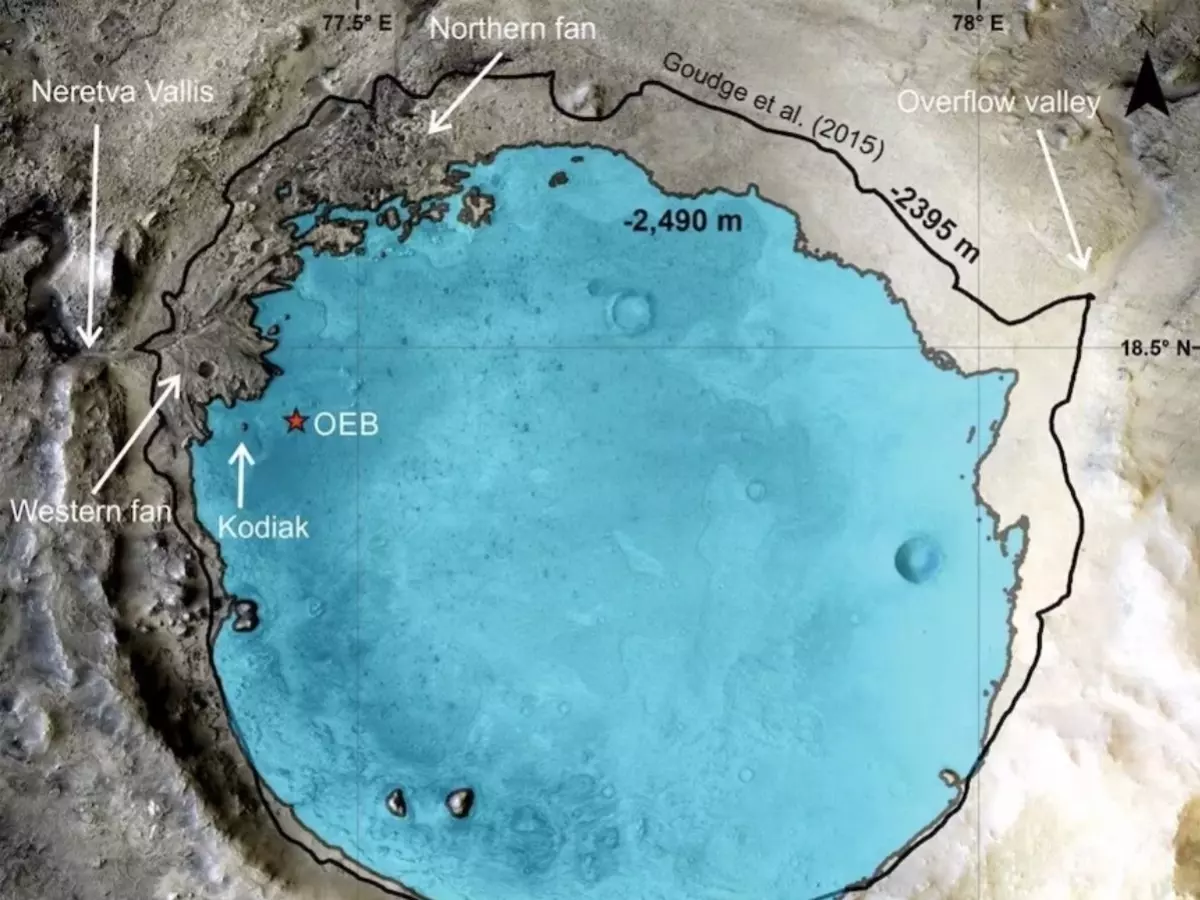Water On Mars: NASA Perseverance Rover Confirms Existence Of Ancient Lake
NASA's Perseverance rover has confirmed the existence of a lake on Mars in new images. A new study has extrapolated on these images to confirm those findings

NASA's Perseverance Mars' is currently scanning the Red Planet for signs that point to existence of life at one point on the planet. The rover had found evidence of an ancient river delta on our neighbour, suggesting that life did flourish on Mars at some point in the past. Now, a study has confirmed the findings of Perseverance.
The rover landed on Mars back in February on the floor of Jezero Crater, which is 45 kilometres wide. The crater was chosen by NASA primarily owing to previous assessments by orbiters which pointed to the existence of a large lake along with a river delta in this crater long ago.
 NASA/JPL-Caltech/MSSS/LPG
NASA/JPL-Caltech/MSSS/LPG
Mars had water, indeed!
In a statement, the study's co-author Benjamin Weiss, a professor from the Massachusetts Institute of Technology said that the rover's images prove that scientists were right in assuming that once a lake flourished on the crater.
Also read: Humans Could Reach Mars In One Month In This 200,000 Kmph Nuclear Rocket
Most earlier images were clicked from the HiRISE camera aboard NASA's Mars Reconnaissance Orbiter and showed the Jezero Crater along with the landing site of Perseverance, which has unofficially been referred to as Octavia E. Butler.
What is Perseverance doing on Mars?
Currently, Perseverance is on Mars for two reasons - to find signs of life on the planet and to catch multiple samples to be brought back to Earth for further study.
Based on previous images clicked by Mars Reconnaisance Orbiter, scientists believed that the fan-shaped feature of Jezero was in fact an ancient delta, where a river emptied into a lake about 3.7 billion years ago.
 NASA/JPL-Caltech/LANL/CNES/CNRS/IRAP/LPG/ASU/MSSS
NASA/JPL-Caltech/LANL/CNES/CNRS/IRAP/LPG/ASU/MSSS
Also read: Engineers Make Concrete From Astronaut Blood, Urine & Space Dust For Mars Houses
The deposits at this ancient lake could have some remains of ancient Mars microbes, which could help create a better understanding of life on the Red Planet.
 Reuters
Reuters
The study was published in Science on October 7 and analysed photos taken by Perseverance which captured "Kodiak", an isolated part of the delta. Images showed sediments that could have been deposited only if a water body existed there for a considerable time in the past.
Evidence of ancient lakes on Mars changes everything we knew about the planet. Share your thoughts with us in the comments below.
For more in the world of technology and science, keep reading Indiatimes.com.
Citation
Perseverance rover reveals an ancient delta-lake system and flood deposits at Jezero crater, Mars. (2021). Science.
